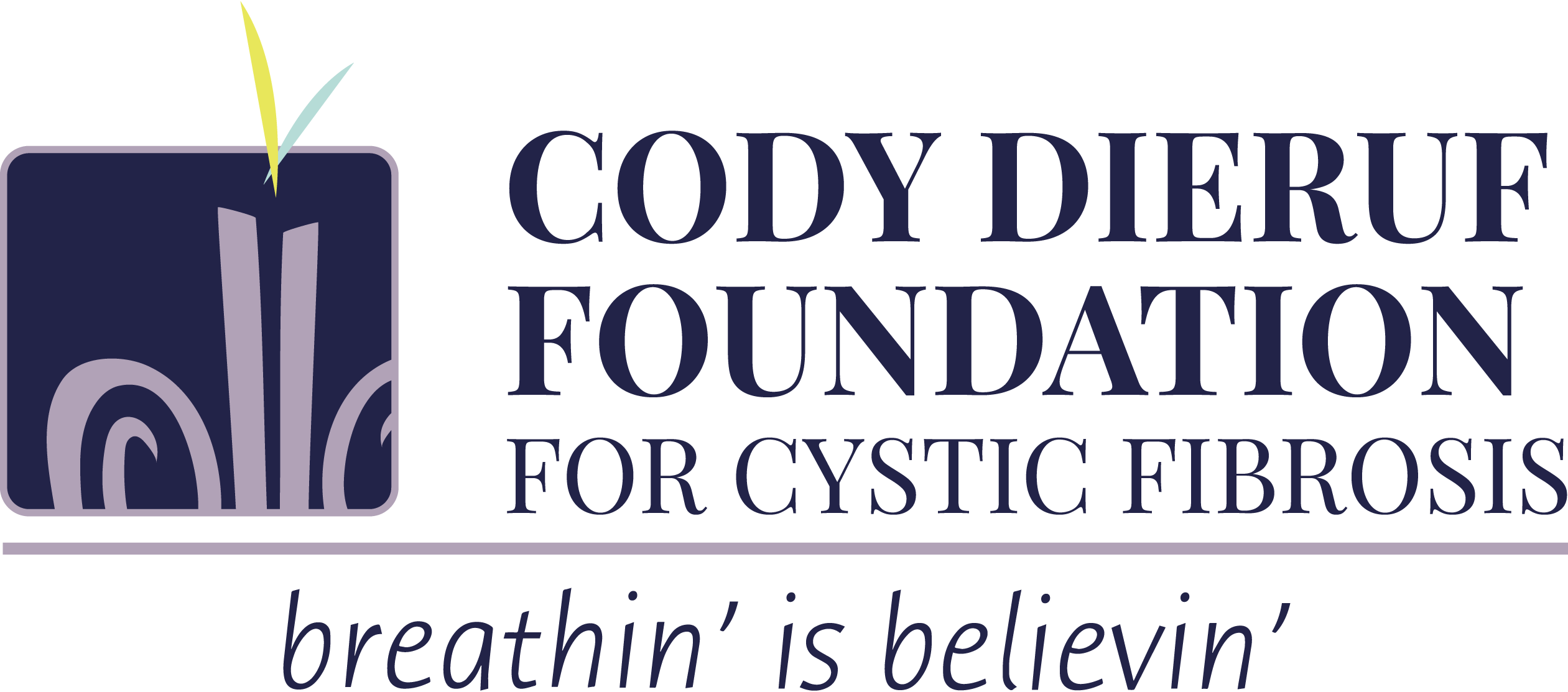
“
Cystic Fibrosis is about living, not dying.
Nov 08 1981 – Apr 28 2005
Life with Cystic Fibrosis
Cystic Fibrosis (CF) is an inherited disease that causes thickened mucus to form in the lungs, pancreas and other organs. In the lungs, this mucus blocks the airways, causing lung damage and making it hard to breathe. CF is a life-threatening condition, but thanks to advances in treatment and care, the average life expectancy has been steadily increasing and quality of life with cystic fibrosis has improved.
You or your loved one with CF might experience a wide range in severity of CF symptoms. Even within the same family, siblings can have differing disease severity.
Symptoms of CF can be classified into two main categories: symptoms of respiratory tract disease and symptoms of gastrointestinal disease. [Click here for a list of the most common symptoms of cystic fibrosis.]
What to Expect
You will meet with the care team (physicians, CF care coordinator, nurses, respiratory therapists, nutritionist, and social worker) who will explain the condition, map out a CF care strategy, and discuss resources.
Some children will need baseline lab work or X-rays at the first visit, depending on their age. Throat cultures are obtained four to six times per year. Newborns are seen very frequently until a feeding regimen, enzyme dosage, and weight gain are established.
Hospitalizations may be required for complications, such as intestinal blockage or pulmonary exacerbations. Ongoing medical treatment tries to keep these to a minimum, and address them in the outpatient setting whenever possible.
Managing Cystic Fibrosis
Maintaining normal weight is very important, as it has been shown to be linked to lung health. A person with CF needs to take in adequate calories. This is sometimes hard to achieve without the use of nutritional supplements or other means, such as a feeding tube. You may also need to take in more salt, especially if you are sweating. An appropriate enzyme and vitamin dose is also very important in the management of CF.
People with CF usually need to do daily airway clearance therapy (ACT) and may need to use inhaled medications or even antibiotics when necessary. It is also important to exercise and stay active for your lung health. You should also make sure any respiratory tract infections are treated promptly. If you think you have an infection, call your doctor, so you can receive medication.
Cystic Fibrosis in Children

Cystic Fibrosis in children can be challenging, but it's important for you to know that you are not alone.
Decades ago, (CF) Cystic Fibrosis was thought of as an early death sentence. Living with CF meant spending much of one's time struggling to breathe and trying to avoid suffering until succumbing to an untimely death in early childhood.
Fortunately, this is no longer the case. Today, people with cystic fibrosis are living longer than ever, usually into middle-adulthood and in some cases longer. Today's generation is discovering that living with CF means learning to cope, daring to hope, and finding a new normal.
- Get support and get involved. Connect with other families with CF.
- Have a plan. This disease can be somewhat overwhelming. Become familiar with the treatments, medications and therapies that you will need as you grow to manage your condition.
- Have strength. It is not like it used to be. Get educated. Trust your doctor and your CF center.
- Plan for a full life. Have hope. Believe in a cure. Know that your parents will give you guidance. People with CF can go to school, have friends, play sports, get married and have children, and have successful careers.
Cystic Fibrosis in Adults
Cystic Fibrosis in adults is becoming more and more common. Here are some suggestions to live life to its fullest.

- Establish a routine. Having Cystic Fibrosis requires taking medicines before meals and snacks, inhaled drugs, therapy treatments several times a day. Sometimes fitting all this routine into your life can become a challenge. Be consistent, it will help you establish a routine and become successful in managing your health. A schedule can help save time.
- Be diligent but flexible. Try to stick with your routine. Don’t postpone treatments, it can cause setbacks in your health.
- Learn to juggle. CF is a life-long commitment, it is not going to go away, You may experience fatigue. It is like a full time job to stay healthy and to keep up with the daily demands of CF. You can do it. You have to. It is your life, stay as healthy as you can.
- It can be stressful for everyone involved. Plan your treatment schedule around events.
- Dream big, you have come this far.
- Exercise. The next best thing to medicine is exercising. It helps your body stay strong and your lungs breathe better. [For more information on staying healthy, please visit our Cystic Fibrosis Diet & Exercise page.]
- Be strong. Be involved with your health, and reach out for support.
Symptoms of Cystic Fibrosis
The thick and sticky mucus associated with cystic fibrosis clogs the tubes that carry air in and out of your lungs. This can cause:

- A persistent cough that produces thick (sputum) mucus
- Wheezing
- Breathlessness
- Exercise intolerance
- Repeated lung infections
- Inflamed nasal passages or a stuffy nose
The thick mucus can also block tubes that carry digestive enzymes from your pancreas to your small intestine. Without these digestive enzymes, your intestines can’t fully absorb the nutrients in the food you eat. The result is often:
- Foul-smelling, greasy stools
- Poor weight gain and growth
- Intestinal blockage, particularly in newborns
- Severe constipation
CFRD – Diabetes
Cystic Fibrosis-Related Diabetes (CFRD) is a unique type of diabetes. It is not the same as diabetes in people without CF. The diagnosis and treatment is not exactly the same. CFRD is extremely common in people with CF especially as they get older.
With early diagnosis and proper treatment, CFRD can be managed successfully.
Many with CFRD do not know they have it until they are tested for it. Some common symptoms are increased thirst and urination which can be caused from high blood sugar levels known as hyperglycemia, excessive fatigue, weight loss and decline in lung functions.
CFRD must be treated to help keep glucose and normal levels, thus you will see weight gain, maintain muscle mass, feel better have more energy.
Cystic Fibrosis Treatment

At this time we have no cure of CF, but Cystic Fibrosis treatment may ease symptoms and reduce complications. Newborn screening helps with early diagnosis.
People with Cystic Fibrosis are leading longer and fuller lives due to increased treatment plans and options, including airway clearance, medications, exercise and good nutrition.
Try to get your treatments and physicians at a center that specialized in Cystic Fibrosis.
The goal of treatment is to reduce lung infections, loosen and removing mucus from the lungs, preventing and treating intestinal blockage, providing adequate nutrition and exercise.
This may include antibiotics, mucus thinning drugs, bronchodilators to to help keep the airways open and relaxed, pancreatic enzymes to help with digestion and absorb nutrients.
Chest physical Therapy which can include clapping and cupping of hands on the front and back of chest, or mechanical devices such as a vest.
Pulmonary rehabilitation may be recommended to improve lung functions, such as exercised, nutritional counseling, breathing techniques, support groups.
So much can be added to your regime, to for everyone, sinus surgery, feeding tubes, endoscopy, oxygen, bowel surgery, lung transplantation.
Remember always consult your physician team on a treatment plan that works best for you.

